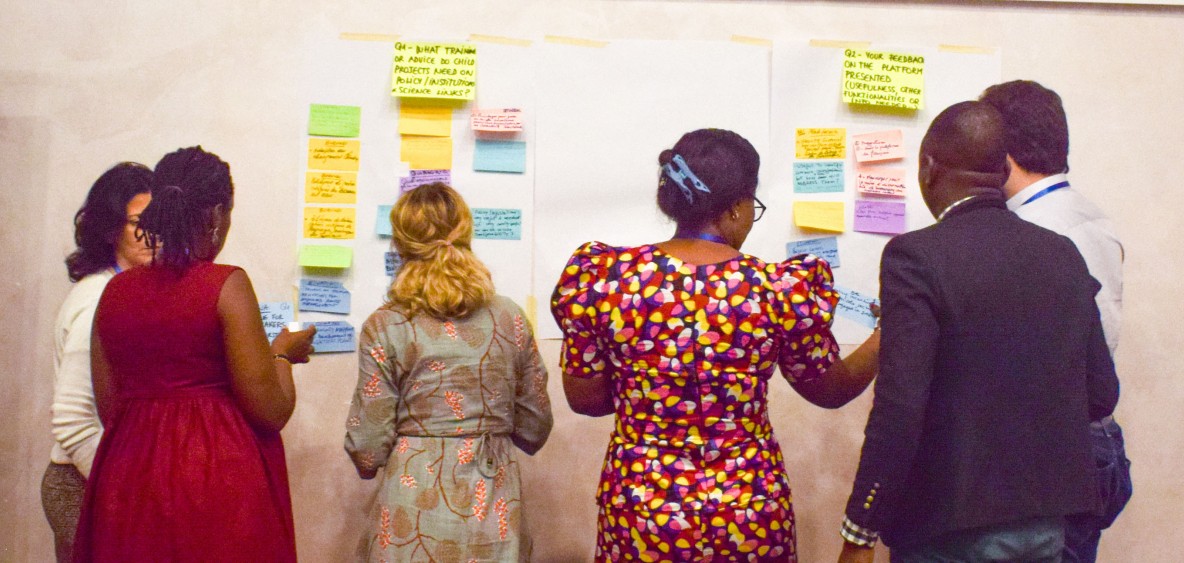
ICRAF, in partnership with Bangor University and IFAD, is working with country project teams to integrate Outcoming Mapping into project implementation and monitoring activities.
Traditional monitoring and evaluation tends to assess the success of an initiative based on outputs that are the direct result of project interventions: the number of farmers who attended a training session, the number of trees planted, the increase in crop yield, etc. These traditional indicators measure a change in the state of a system; however, they do not necessarily correlate with long-term impact.
To help RFS country projects expand the scope of monitoring and evaluation beyond the measurement of outputs, Regional Hub partner, World Agroforestry (ICRAF), in partnership with Bangor University and IFAD, is supporting the integration of Outcome Mapping into country project implementation.
Developed by the International Development Research Centre (IDRC), Outcome Mapping is a methodology that shifts the focus of evaluation to the primary agents of transformational change—people. Outcoming Mapping measures progress through changes in the behaviours, relationships, actions or activities of the key stakeholders identified within each country project.
Following a preliminary study by ICRAF in 2018, the Outcome Mapping team, led by Dr. Eefke Mollee of Bangor University, introduced RFS country projects and partners to key Outcome Mapping concepts at the 2019 RFS Annual Workshop in Bolgatanga, Ghana. The team also facilitated a participatory exercise through which country project teams assessed the level of intentional design within their evaluation frameworks.
In order to further strengthen Outcome Mapping capacity development and tailor training to different country project needs, from July to September 2020, the Regional Hub held a series of virtual training sessions for four country projects – Nigeria, Uganda, Senegal and Niger. The objective of the training series is to help RFS country project teams build the skills necessary to integrate Outcoming Mapping into their monitoring and evaluation plans and activities.
The training stressed the importance of Boundary Partners as a bridge between the programme and the real world. Boundary Partners are a diverse range of individuals, groups and institutions that exert change beyond the project’s immediate sphere of influence. By identifying and targeting Boundary Partners for behaviour change, RFS projects are able to expand the reach of their impact beyond immediate interventions.
The training facilitators also underscored the importance of aligning project activities with a collective vision for the future, leading each country team through a participatory exercise to develop project vision and mission statements. Dr. Mollee stressed the importance of building consensus around vision statements amongst different levels of intervention – national, state and district.
In order to incorporate different perspectives, country team members broke off into smaller groups to brainstorm vision statements and identify Boundary Partners who would be fundamental in contributing towards the project’s long-term objectives. These smaller groups then built strategy maps targeted toward various Boundary Partners to identify actions for influencing changes in behaviour.
From here on out, country projects will be encouraged to follow this methodology to monitor the progress and alignment of project interventions with desired shifts in behaviour change. The strategy maps will help guide immediate actions for integrating these new concepts and ideas into project activities and further support be offered by the Regional Hub to country project teams in the coming years.
Subscribe to our monthly newsletter to receive updates on stories directly from the field across all our projects, upcoming events, new resources, and more.